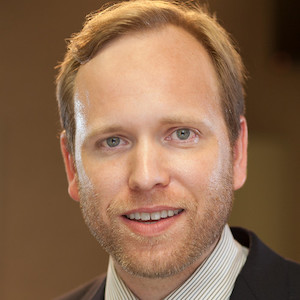Steve Post, iconoclastic wit at WNYC and WBAI, dies at 70
Steve Post, a formidable countercultural presence for decades as a host on New York’s WBAI and WNYC, died Sunday after years of battling lung cancer. He was 70.
Post spent the majority of his radio career at WNYC, hosting the weekday classical show Morning Music from 1981 to 2001, followed by the weekly music and commentary program The No Show from 2002 to 2009. He drew a devoted fan base with his acerbic wit, which he used to insert mocking asides into news bulletins and underwriting spots. Post was quick to decry on air what he viewed as the increasing commercialization of public radio, yet he supported WNYC, helping the station raise funds during pledge drives.
Post began his radio career at Pacifica’s WBAI in 1965 as the station’s bookkeeper. He was managing program guides and finances when he was asked to fill in for freeform-radio pioneer Bob Fass. That eventually led to Post hosting his own evening show, The Outside, which replaced a show called The Inside.
“In a way, he was the original geek on the radio,” said Paul Fischer, who worked with Post at WBAI and remained his friend for more than 50 years. “He would go on the air and talk about his social awkwardness and getting dates. People were used to hearing people on the radio talk about anything but that, so [now] there was a place for people like us to go.”
Post became a third of the station’s trio of inventive freeform hosts, joining Fass and Larry Josephson. He rose to station manager before leaving in 1979.
Post published a memoir of his early years at WBAI, Playing in the FM Band: A Personal Account of the Free Radio, in 1974. His colleagues at WBAI also included former Talk of the Nation host Neal Conan and NPR reporter Margot Adler, who died last week.
Post continued his freeform antics at WNYC, which made no effort to rein in his personality for its classical audience. “The link between his ’BAI days and his WNYC days was the attitude that he was going to be the last honest man in the building,”said Dean Cappello, WNYC’s chief content officer. “He hated Nixon and he loved conspiracies, and that was part of what was terrific about having him in-house.”
Every WNYC staffer had their favorite line of Post’s, Cappello said. One of his classics: “You’re listening to Morning Music, the first radio show accused of crimes against humanity.”
“His personality was the same on air as off: mordant, satirical and very funny,” wrote Josephson in a remembrance. “He was soft-spoken, low-key, depressed, but also warm and loving, under the carapace of a curmudgeon. . . . He skewered confidential memos marked ‘for station personnel only,’reading them on the air exactly as written, in a subtly mocking tone.”
WNYC reformatted its schedule in the aftermath of the Sept. 11 attacks that destroyed its radio tower, eliminating music from its morning schedule. The change created an opportunity for Post to start a new weekend show tailored to his personality, with less fidelity to the music that interrupted his quips. Though Post was reluctant at first, he eventually agreed and crafted The No Show, Cappello said. WNYC ended production of The No Show in 2009 due to programming costs, Cappello said.
Between his time at WBAI and WNYC, Post spent three years in commercial radio, filling a slot at WBLS-FM.
Post battled colon cancer earlier in his career and lung cancer in recent years but remained dedicated to the airwaves.
“Working with Post was an utter blast,” said Sara Fishko, who worked with him at WBAI and WNYC, in an email. Fishko called him “a generous collaborator, picking up immediately on a new idea and laughing out loud at a joke from the other side of the console.”
Post is survived by his wife Laura Rosenberg and brother Gerry.







